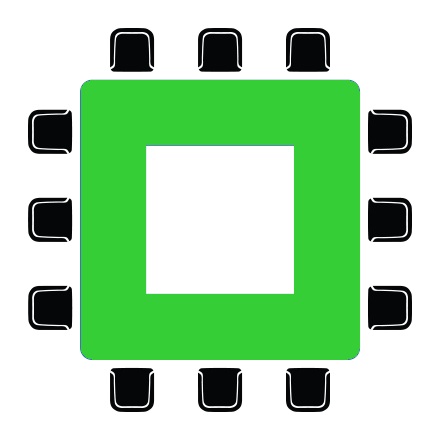A Reflection on Reflection in Socratic Seminars…
By John Zola, Trainer
www.johnzola.com
Socratic seminars are a powerful form of classroom discussion that provide opportunities for authentic conversation and rigorous meaning making. In a seminar, students work to make “meanings” of an ambiguous text by using the key skills related to thinking, speaking, and listening. When the seminars really “work,” they provide one of the most memorable learning experiences for students and teachers alike.
Because there is meaning to be made from the process of making meaning, a Socratic seminar should always finish with a “critique.” In our seminars students know that the seminar follows with a “whip around” where all of the students in the class, participants and observers, take turns to share one thing they each “noticed” about their conversation. Unlike the actual seminar, all are required to contribute because everyone was in the room and had the capacity to notice something. As students do the critique over time, their responses tend to become more specific and helpful in building a culture of seminars in the classroom. The critique helps “us” do “our” work better in seminars.
 But why take precious class time for reflection on such a finished seminar? First, it’s great to hear some students say, aloud, they loved the seminar or text; while it is also important that others have a chance express what didn’t work for them. In these whip arounds, students go beyond what they noticed about the text and their new understanding of it, and often delve into the process and group interactions of what took place. The critique allows students to share reflections of their own participation…”I talked too much” or “I had ideas, but couldn’t find my way into the conversation.” There might also be comments on the behaviors of classmates…”some people talked too much!” or “people talked over each other and didn’t really listen.” This provides opportunities to open the discussion about why some people talk more or what might be different in the next seminar. In the process of reflection, the class is taking ownership for its own seminar behaviors. For the teacher, it’s a window into the varied experiences students just had and how they are processing them.
But why take precious class time for reflection on such a finished seminar? First, it’s great to hear some students say, aloud, they loved the seminar or text; while it is also important that others have a chance express what didn’t work for them. In these whip arounds, students go beyond what they noticed about the text and their new understanding of it, and often delve into the process and group interactions of what took place. The critique allows students to share reflections of their own participation…”I talked too much” or “I had ideas, but couldn’t find my way into the conversation.” There might also be comments on the behaviors of classmates…”some people talked too much!” or “people talked over each other and didn’t really listen.” This provides opportunities to open the discussion about why some people talk more or what might be different in the next seminar. In the process of reflection, the class is taking ownership for its own seminar behaviors. For the teacher, it’s a window into the varied experiences students just had and how they are processing them.
 Equity Maps is an excellent tool to support this process of reflection and promotes the group taking ownership of seminar behaviors. Data is always helpful. If there are comments that “not very many students talked today,” you can turn to Equity Maps to see actual data. Frequently, more students participated than remembered or noticed! Playback of portions of the seminar can help go deeper into student comments during the critique. With the Checknotes function too, students can quickly see the nature of what they shared: the types of questions, references to the text, or number of examples added from class, to name a few. From this tool, goals for future participation can be crafted by the students…and suggested by the teacher.
Equity Maps is an excellent tool to support this process of reflection and promotes the group taking ownership of seminar behaviors. Data is always helpful. If there are comments that “not very many students talked today,” you can turn to Equity Maps to see actual data. Frequently, more students participated than remembered or noticed! Playback of portions of the seminar can help go deeper into student comments during the critique. With the Checknotes function too, students can quickly see the nature of what they shared: the types of questions, references to the text, or number of examples added from class, to name a few. From this tool, goals for future participation can be crafted by the students…and suggested by the teacher.
It’s debatable whether it’s true that “the unexamined life is not worth leading.” It’s not in doubt that the “examined seminar will improve over time!” Taking time for reflection, in the form of the “critique” and using a tool like Equity Maps, is well worth the small amount of class time that it actually takes.
John Zola is available to conduct workshops for schools and districts. Workshops are highly participatory and provide time to adapt activities to teacher classrooms and communities ([email protected]).
John Zola spent 32 years as a high school social studies teacher; most recently at New Vista High School, a “break the mold” public high school in Boulder, Colorado. Throughout his career, John has trained colleagues in active learning strategies and Socratic seminars. His workshops help teachers make the voice and work of students central in the classroom. In his workshops, participants “do” the strategies, discuss how they might work in a variety of settings, and have opportunities to adapt the strategies for use in their own classrooms. John’s workshops are interactive and highly participatory. John currently conducts in-service trainings on Socratic seminars, and engaging teaching strategies in a variety of locations around the United States, Central Europe, Latin America, and Asia.

